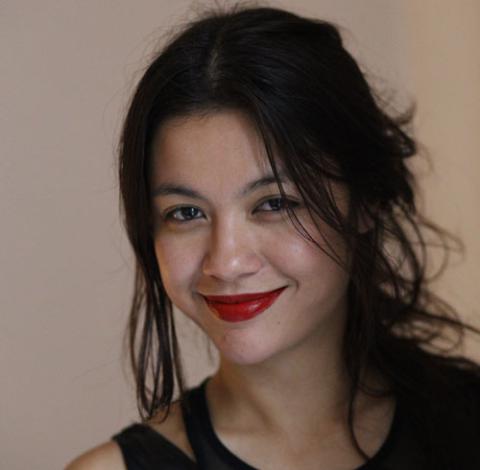How to lead with impact: A spotlight interview with Lahiru Perera
Lahiru Perera’s professional journey with the United Nations Office for Project Services (UNOPS) began in 2005 in Sri Lanka. Over the years, he has held diverse roles, showcasing his proficiency in engineering, contracts management, procurement, and project management. He is currently Project Manager for Infrastructure and Procurement Projects at the UNOPS South Asia country office. In his role as a project manager, he has demonstrated exceptional proficiency in overseeing projects valued at over $50 million. They encompass a diverse range of initiatives, spanning infrastructure development (such as buildings, laboratories, and oxygen plants) alongside procurement endeavours. Notably, he has spearheaded emergency procurement efforts during pandemics, ensuring the timely supply of critical resources including laboratory equipment, medical supplies, personal protective equipment, and various maritime goods and services.
In 2023, Lahiru received the UNOPS Leadership Award, recognizing his leadership and contributions to the organization, solidifying his status as a standout professional in his field. Lahiru shares his learning experience with Natalia Kawana, UNSSC’s Associate Learning Officer, in this spotlight interview.
Natalia: What prompted you to participate in the UNOPS “Leading for Impact” programme ?
Lahiru: I enrolled in this programme with the goal to strengthen my leadership skills within the UNOPS community, having spent half of my professional career within the organization. I started my journey at the entry level as a site engineer and rose up through the organization to the project manager level. This UNSSC programme has a great internal reputation for providing an impactful learning experience and it aligned with my commitment to my professional development.
Natalia: What did you find unique about your learning experience with us?
Lahiru: What sets this learning experience apart from others is its practical approach. The sessions were not just about theory, they focused on applying the knowledge directly to my role as a project manager. The real-world case studies were immediately relevant for my day-to-day responsibilities.
Additionally, diverse views within the programme added a unique layer to the experience. Interacting with peers from other offices increased my understanding of the leadership dynamics within our organization. I now have a valuable network of professionals among the UNOPS family. Thank you UNSSC.
Natalia: You recently received a UNOPS Leadership Award. Can you tell us some of the gems you implemented in your career to earn the award? In what ways did the programme help you enhance your skills and leadership?
Lahiru: When they announced the award, I was in the field with the audit team. It was a real honour!
First, I would like to acknowledge my team. My dynamic team is a crew of civil and mechanical engineers and talented procurement professionals. They are my strength.
Listening is my secret. I learned this from the programme . My team raises issues and risks with me all the time and they expect a solution. I strive to ensure that they feel heard.
Second, I always like to think outside-of-the-box. When we are faced with barriers in our projects, we don't just find a solution, we find innovative ones.
During the programme I learned the importance of celebrating team wins. When we do something well, we celebrate, and it builds our collective morale.
Natalia: Let's talk a little bit about the challenges you have faced as a leader at UNOPS. How has this training changed your perspective?
Lahiru: Leading and managing people is not a simple task. One of the main areas I have had to learn to practice is cultural sensitivity across a diverse team and supporting team members as they try to resolve their misunderstandings or dislikes. Then there is also balancing the overall approach to career growth opportunities. There are opportunities for training and promotions, and I try to ensure that everything is fair and equal. Now we share these opportunities with the team equally without bias.
The programme helped me to hone my cultural intelligence skills by using the tools to foster collaboration and conflict resolution strategies which transformed team dynamics.
Natalia: What did you enjoy the most about your learning experience on the “Leading for Impact” programme? Was there anything that surprised you?
Lahiru: It was an incredible process! I enjoyed the perfect mix between theory and real-world application. It was not just about learning; it was about doing. The interactive sessions and the hands-on approach made the concepts stick. I can already see the impact in my daily leadership style. Once again, what surprised me the most was the diversity of perspectives within the programme, especially engaging with professionals from different corners of the world.
Natalia: Any memorable lessons from the programme?
Lahiru: There are so many lessons that I received from the programme namely:
- the power of adaptive leadership;
- looking at challenges as an opportunity, not a setback;
- effective communication strategies, which make up my leadership superpower;
- how to deliver effective presentations with a target audience;
- the art of thinking outside of the box.
Natalia: Would you recommend this training programme to others?
Lahiru: Absolutely, the programme is a practical toolkit for the real world. Secondly, there is a lot of diversity within the programme, reflected in the different professionals from all corners of the world sharing knowledge. Lastly, the ongoing support and resources post-programme, like the leadership mentors (executive coaches), especially for the 360-degree assessment, how to interpret the feedback and to overcome challenges in leadership.
